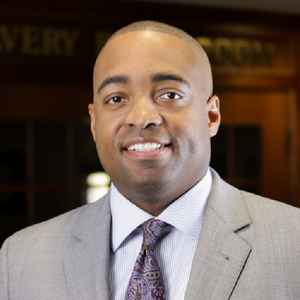
Education , Economy
Jonathan Small | July 25, 2022
Educational choice must accompany increased spending
Jonathan Small
Ever-increasing education spending—per student, adjusted for inflation—has been a century-long trend in Oklahoma. Spending is now at an all-time high.
Is it enough? A new survey conducted by the respected research firm Morning Consult finds that most Oklahomans believe public school funding in our state is too low—until they are informed how much we actually spend.
“On average, Oklahoma pays $7,940 per student attending public school each year,” survey respondents were told. “Do you believe public school funding is too low?”
Armed with this information, only 43% of Oklahoma adults, and 36% of Oklahoma parents, say it’s too low.
Those percentages would doubtless be even smaller if the pollster had used a different dollar amount. According to the Oklahoma State Department of Education, annual per-student spending in our state is actually $10,086.
Indeed, the chairman of the Senate Education Committee, state Sen. Adam Pugh (R-Edmond), says Oklahoma’s per-student funding is actually around $15,000 per student when all funding sources are included.
“If it’s about funding, how much money does it take?” Pugh asks. “I’m the chair of education, and no one’s given me a dollar amount. … No one will answer that question.”
State Sen. Zack Taylor (R-Seminole) likewise says he has “asked the question over and over and over again: What does it mean to ‘fully fund’ education? Exactly how much money do we need to be spending per student? Once I’ve been told that we need to be back at the 2008 high-water mark of funding. Well, you know what? I voted on tax increase after tax increase after tax increase. I voted for more taxes than I ever thought I would in my life to get us to that point. And it’s still never enough.”
For some, it never will be. “I’ll just let you know that we’re nowhere close,” Mid-Del superintendent Rick Cobb informed us in 2016. “I don’t have a number … I don’t have a number. You’re lucky I have my nice words. Just keep adding, and we’ll tell you when you get there.”
But of course, we’ll never get there. Former Tahlequah superintendent Lisa Presley once said the quiet part out loud: “There has never been enough revenue for public education, and there never will be.”
Like most Oklahomans, I’m skeptical that increased government spending on education is providing a good return on investment. Nevertheless, I’m willing to keep spending more—provided that we “fund students, not systems,” as Gov. Kevin Stitt has phrased it.
Our fellow “red for ed” states are doing just that. Since 2018, our fellow teacher-strike states West Virginia and Arizona have embraced full-blown educational freedom via Education Savings Accounts. Lawmakers in those states decided that, for all Arizona students and nearly all West Virginia students, the money should be allowed to follow the child.
Oklahoma must do likewise in 2023.

Jonathan Small
President
Jonathan Small, C.P.A., serves as President and joined the staff in December of 2010. Previously, Jonathan served as a budget analyst for the Oklahoma Office of State Finance, as a fiscal policy analyst and research analyst for the Oklahoma House of Representatives, and as director of government affairs for the Oklahoma Insurance Department. Small’s work includes co-authoring “Economics 101” with Dr. Arthur Laffer and Dr. Wayne Winegarden, and his policy expertise has been referenced by The Oklahoman, the Tulsa World, National Review, the L.A. Times, The Hill, the Wall Street Journal and the Huffington Post. His weekly column “Free Market Friday” is published by the Journal Record and syndicated in 27 markets. A recipient of the American Legislative Exchange Council’s prestigious Private Sector Member of the Year award, Small is nationally recognized for his work to promote free markets, limited government and innovative public policy reforms. Jonathan holds a B.A. in Accounting from the University of Central Oklahoma and is a Certified Public Accountant.